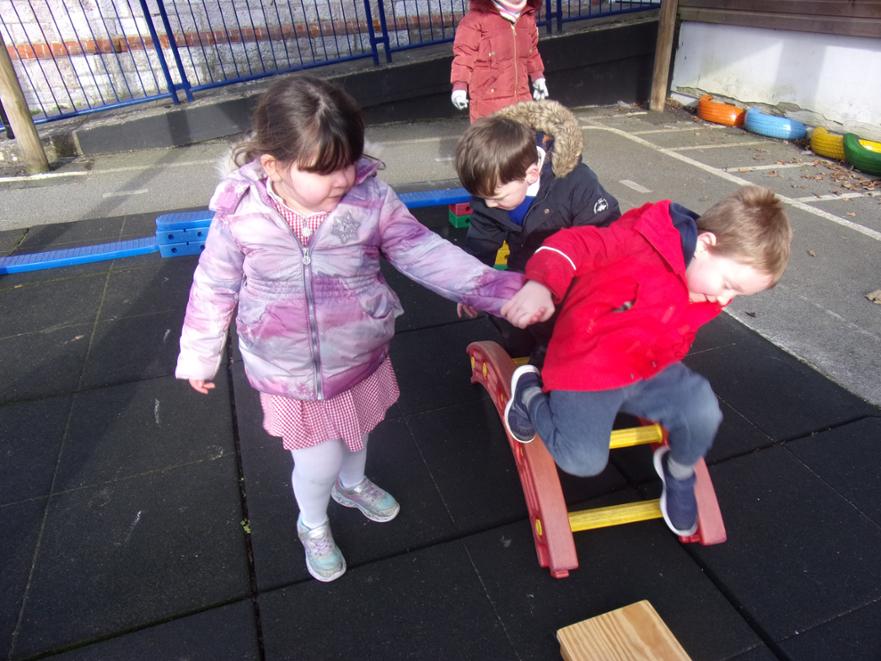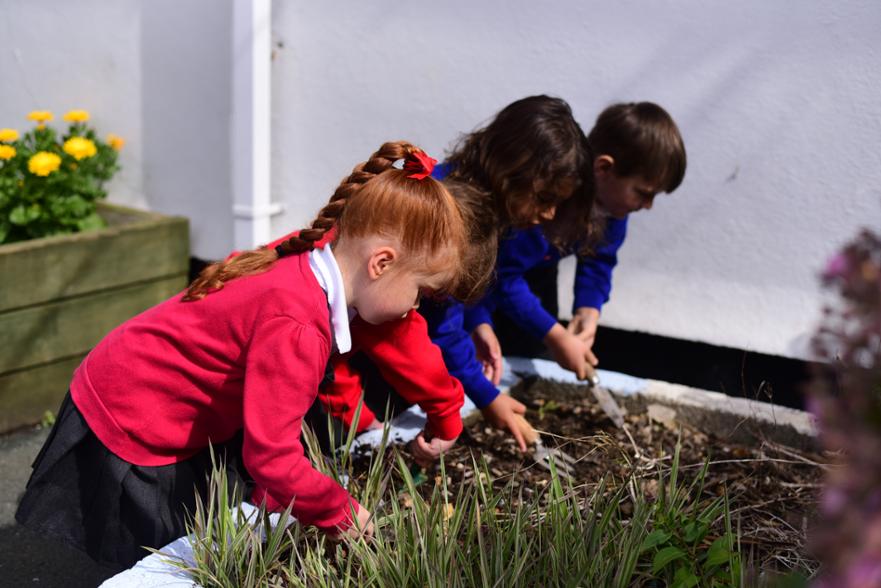Personal, Social, Health and Relationships Education
We believe that our personal, social, health and relationships curriculum enables every child to leave Torpoint Nursery and Infant School with the skills, vocabulary, knowledge and attitude to become a happy, healthy adult, which will lead to them living a fulfilling life and becoming a responsible citizen within our society.
Our active approach to teaching and learning and our comprehensive Personal, Social, Health, Relationships and Economic Education responds to the needs of our children as they move from Nursery to Reception (PSED) and then on to Year 1 and Year 2 (PSHRE.)
At Torpoint Nursery and Infant School:
- We help children to know and understand what constitutes a healthy lifestyle.
- We enable our children to develop an understanding of personal safety issues and help them to identify and manage risks.
- We help our children to become independent and responsible members of the school community, enabling them to make positive relationships with peers, other members of the school and the wider community.
- We encourage our children to be a positive and active member of society.
- We ensure our children develop self- confidence, self esteem. resilience and the ability to make informed choices regarding personal and social issues.
- We enable our children to be confident, curious and independent learners.
- We enable our children to be able to reflect and clarify their own values and attitudes.
- We support our children with making informed lifestyle choices.
- We help our children to recognise, accept and shape their identity.
- We teach our children that a healthy body and a healthy mind leads to positive emotional well-being.
For our children in the Early Years Foundation Stage children’s Personal, Social and Emotional Development (PSED) is crucial for children to lead healthy and happy lives, and is fundamental to their cognitive development. Underpinning their personal development are the important attachments that shape their social world. Strong, warm and supportive relationships with adults enable children to learn how to understand their own feelings and those of others. Children are supported to manage emotions, develop a positive sense of self, set themselves simple goals, have confidence in their own abilities, to persist and wait for what they want and direct attention as necessary. Through adult modelling and guidance, they will learn how to look after their bodies, including healthy eating, and manage personal needs independently. Through supported interaction with other children they learn how to make good friendships, co-operate and resolve conflicts peaceably. These attributes will provide a secure platform from which children can achieve at school and in later life.
The strands of the PSED areas of learning that result in the Early Learning Goals are:
- Self Regulation: Children at the expected level of development at the end of their Reception Year will: - Show an understanding of their own feelings and those of others, and begin to regulate their behaviour accordingly; - Set and work towards simple goals, being able to wait for what they want and control their immediate impulses when appropriate; - Give focused attention to what the teacher says, responding appropriately even when engaged in activity, and show an ability to follow instructions involving several ideas or actions.
- Managing Self: Children at the expected level of development at the end of their Reception Year will: - Be confident to try new activities and show independence, resilience and perseverance in the face of challenge; - Explain the reasons for rules, know right from wrong and try to behave accordingly; - Manage their own basic hygiene and personal needs, including dressing, going to the toilet and understanding the importance of healthy food choices
- Building Relationships: Children at the expected level of development at the end of their Reception Yearwill: - Work and play cooperatively and take turns with others; - Form positive attachments to adults and friendships with peers; - Show sensitivity to their own and to others’ needs
We include the characteristics of effective teaching and learning in our planning and guiding what children learn. This means we reflect on the different rates at which children are developing and adjust their practice appropriately.
The three characteristics of effective teaching and learning are:
• playing and exploring - children investigate and experience things, and ‘have a go’
• active learning - children concentrate and keep on trying if they encounter difficulties, and enjoy achievements
• creating and thinking critically - children have and develop their own ideas, make links between ideas, and develop strategies for doing things
In KS1 children focus on learning about Relationship Education and Health Education and they take part in PSHRE lessons twice a week. They are given a safe learning environment, which is underpinned by our school ethos and values, in which they can talk about the objectives covered.These lessons are usually done as a circle-time with a teacher children know well and trust. We also tackle any other issues as and when they might arise, this can happern at any time during the school day to support the each child's understanding and emotional development in a wide variety of situations.
Lessons throughout the year will include children learning about healthy relationships, including friendships; families; personal hygiene; physical and mental well-being; understanding feelings and emotions; becoming more independent; keeping safe, including how to stay safe online; developing self-esteem and confidence. Children will have opportunities to ask questions and share their own experiences.
As a Nursery and Infant School the age appropriate teaching of the Protected Characteristics is firmly embedded in our PSHRE Programme of Study, where children learn to respect commonalities and differences between each other and their families, within school and the wider world. A central goal of our school is to promote in each child an understanding of diversity, alongside a strong sense of belonging within the wider community and the country in which they live.

